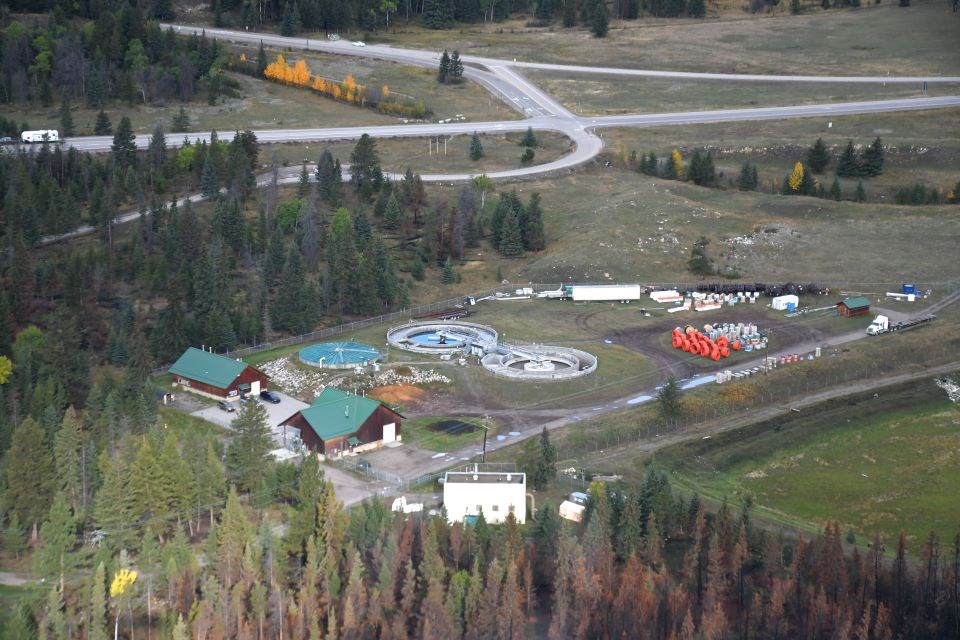The Municipality of Jasper is applying for grant funding to help cover close to $5 million in costs to reline its emergency wastewater storage facility and install a new groundwater monitoring well.
Council approved the submission of an application to the Alberta Water Wastewater Partnership on Tuesday (Nov. 19) to help cover an estimated $4.75 million to reline the lagoon and $50,000 for the new monitoring well.
“Whenever there’s a plant upset or an outage as occurred during the wildfire, wastewater flows will overflow into what was the old lagoon, and because it’s unlined, [it] will seep into the ground and potentially enter the river,” said Bernd Manz, interim director of operations and utilities.
The municipality operates its water and wastewater systems under a 10-year approval through Alberta Environment and Parks.
The approval was renewed in May 2024, and one of the conditions was the municipality add a liner system to the emergency wastewater storage facility by the end of 2026. Manz noted this requirement was meant to reduce the facility’s impact on the environment.
Based on Jasper’s population, the grant would cover up to 47 per cent of eligible cost, over $2.2 million, while the municipality would cover the remaining $2.5 million from debt and reserves, specifically the utility capital accumulated surplus, which was $1.7 million at the end of 2023.
“We plan to undertake the detailed design next year and construction in 2026,” Manz said.
Natasha Malenchak, director of finance and administration, said this would cause the debt to be more than initially anticipated, but it had since been forecasted in the upcoming capital budget and the debt plan.
Although the municipality was putting more away in reserves since adopting the new utility rate model, it also started to incur more expenses since the wastewater treatment plant was more than 20 years old.
“Once we get to a point where all those capital items are taken care of, then we’ll see a better return on what we have in the plan for saving up in the future,” Malenchak said.
Coun. Helen Kelleher-Empey said they would likely be more reliant on debt than reserves in the near future due to having fewer utility users following the wildfire.
CAO Bill Given noted this loss of utility revenue was reflected in its disaster relief funding application to the Alberta government but acknowledged if there wasn’t revenue from some other source, those costs must be delayed or shifted to other customers, or projects would need to be postponed.
“And as you can see with the project that’s in front of us right now, some of those projects we just don’t have the option to delay,” he said.




